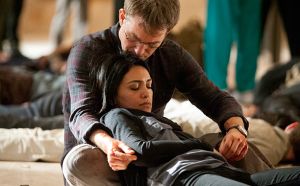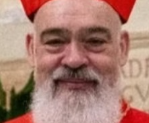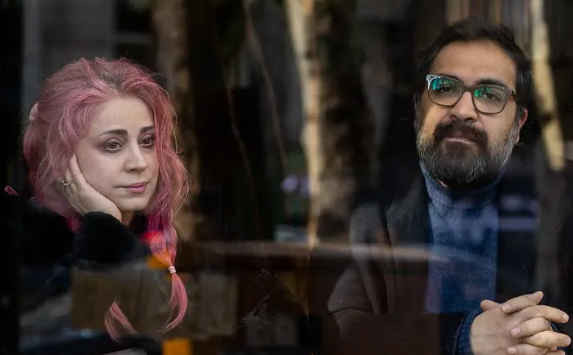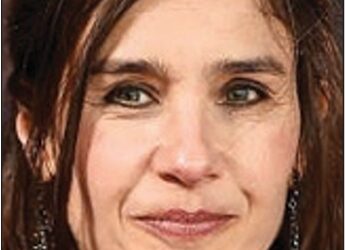December 12, 2014

The weekly TV drama “Homeland” delivered a shocking twist in Sunday’s episode with the Iranian-American character played by Anglo-Iranian Nazanin Boniadi murdered by a terrorist.
Boniadi played a brave and empathetic CIA analyst, Fara Sherazi, wearing a headscarf for her role, although it’s hard to find Iranian-Americans who wear headscarves.
In Sunday’s episode, Sherazi was killed after the terrorist Haqqani seized control of the American embassy in Islamabad, Pakistan, where Boniadi’s character worked.
In an interview with Entertainment Weekly, Boniadi said she learned of her character’s demise three weeks before that episode was to be filmed.
“I got a call from [show-runner] Alex Gansa and … he told me he had difficult news for me but that the writers had decided to end Fara’s journey, but in a very poetic way, I think. He explained to me the reasoning behind it and it all made sense.
“As actors, it’s always hard for us to hear that news. But in every case, actors serve the story and when it makes sense to the story it is what it is and you go on,” Boniadi said.
She acknowledged that the news caught her off guard and affected her in an unusual way. “I love Fara so much. I went through two weeks of mourning. It was a very foreign experience to me; I’ve never experienced that as an actor. I was a fan of the character; I had grown to love her. It was hard to let her go. To watch the episode tonight was very difficult,” she said.
Entertainment Weekly commented that the Fara character has been something of the moral compass for “Homeland” this season, and Boniadi agreed.
Asked what it was like to perform the death scene, Boniadi said, “It was gut-wrenching.
“When we shot the scene of Haqqani grabbing me at knife-point, we had a rehearsal. But I didn’t hear them say we were just rehearsing, so I gave a full performance during the rehearsal and let it all outÖ. And then they said, ‘Let’s shoot,’ I said, ‘Wait a minute, we weren’t shooting that?’”
Boniadi said, “I really love the character because she is in my eyes a groundbreaking character and I felt very privileged to play her for two seasons. And the fact I’m going to miss the cast and crew tremendously made the whole episode very raw for me.”
The role was a ground-breaking one in the sense that Fara was an empathetic Muslim working for the CIA and opposed to terrorism, while most characters identifiable as Muslims in films and television are terrorists, even though many are now portrayed with a depth of character and not simply as two-dimensional figures tossing bombs and spouting fury.
Boniadi said, “It’s nice to see a character that personifies this unity between East and West that’s rarely seen on television. Like you said, she’s a moral compass of the show; she was this season, she was last season.”
Boniadi said, “I think she served a purpose on the show and it’s every actor’s dream to have a beginning and middle and end, and to have an arc that served a purpose.”
As for her last day on the set, she said, “It was bittersweet. Bitter because it was the end of a two-year journey that I cherished. Sweet because [the producers] surprised me with this very large [photo] they blew up and framed and had all the writers and creative team sign, and it was a very moving send-off.”
Boniadi won’t be unemployed for long, however. She has already signed to play the lead female role in a remake of the film “Ben Hur.” But she is barred now from discussing that role. “I can’t unfortunately talk about that yet. My lips are sealed,” she told Entertainment Weekly.
Off stage, Boniadi has been active in supporting women’s rights issues in Iran, though she acknowledges that is a difficult challenge.
“I can’t say that it’s gotten better. But more voices help the cause and amplifies the message if there are more people involved,” she said. “I think the best way to get involved is through AmnestyUSA.org and find out how you can join a local chapter. And also to contact representatives wherever we may be and whatever our human rights cause may be and make sure our voices get heard.”























